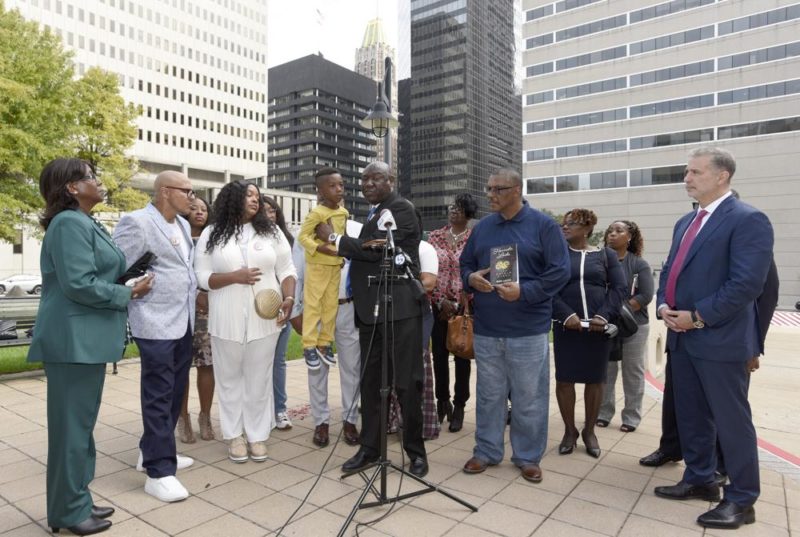Henrietta Lacks Estate Sues Company Using Her ‘Stolen’ Cells
Share
Explore Our Galleries
Breaking News!
Today's news and culture by Black and other reporters in the Black and mainstream media.
Ways to Support ABHM?
By Michael Kunzelman, Associated Press
The estate is accusing a biotechnology firm of selling cells taken from her in 1951 without her knowledge or consent.
COLLEGE PARK, Md. (AP) — The estate of Henrietta Lacks sued a biotechnology company on Monday, accusing it of selling cells that doctors at Johns Hopkins Hospital took from the Black woman in 1951 without her knowledge or consent as part of “a racially unjust medical system.”
Tissue taken from the woman’s tumor before she died of cervical cancer became the first human cells to be successfully cloned. Reproduced infinitely ever since, HeLa cells have become a cornerstone of modern medicine, enabling countless scientific and medical innovations, including the development of the polio vaccine, genetic mapping and even COVID-19 vaccines.

Lacks’ cells were harvested and developed long before the advent of consent procedures used in medicine and scientific research today, but lawyers for her family say Thermo Fisher Scientific Inc., of Waltham, Massachusetts, has continued to commercialize the results well after the origins of the HeLa cell line became well known.
Johns Hopkins said it never sold or profited from the cell lines, but many companies have patented ways of using them. Crump said these distributors have made billions from the genetic material “stolen” from Lacks’ body.
The remarkable science involved — and the impact on the Lacks family, some of whom suffered from chronic illnesses without health insurance — were documented in a 2010 bestselling book, “The Immortal Life of Henrietta Lacks.” Oprah Winfrey portrayed her daughter in an HBO movie about the story. The lawsuit was filed exactly 70 years after the day she died, on Oct. 4, 1951.
Read the full article here.
Learn more about the life of Henrietta Lacks and her impact on science here.
More Breaking News here.









Comments Are Welcome
Note: We moderate submissions in order to create a space for meaningful dialogue, a space where museum visitors – adults and youth –– can exchange informed, thoughtful, and relevant comments that add value to our exhibits.
Racial slurs, personal attacks, obscenity, profanity, and SHOUTING do not meet the above standard. Such comments are posted in the exhibit Hateful Speech. Commercial promotions, impersonations, and incoherent comments likewise fail to meet our goals, so will not be posted. Submissions longer than 120 words will be shortened.
See our full Comments Policy here.